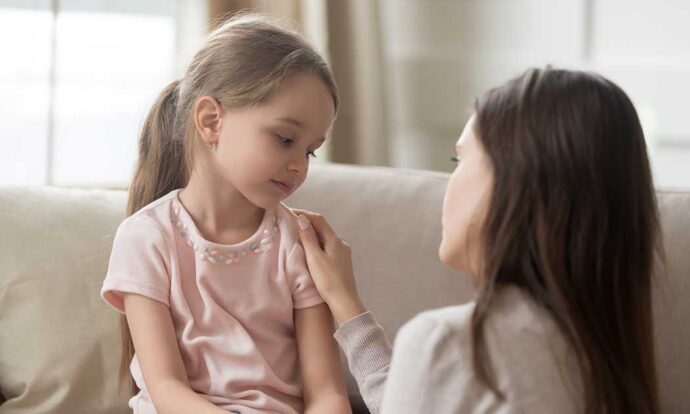With all the hustle and bustle of the holiday season upon us, I’d like to take a moment to talk about stress and how it relates to young children. Many children, and adults, have difficulty with change. Last minute changes to family plans, celebrations, vacations, and holidays can contribute to stress, even when they are merry and bright!
Any change in a child’s life or routine can cause stress. Common sources of stress are the birth of a new sibling or the divorce of parents. Stress can also be caused by the death of a relative, a beloved pet, a family move, separation from parents for extended periods, pressure to succeed, overly strict discipline, natural disasters and violence (even when the child has only seen them on television). Overstimulation by birthday celebrations, crowded shopping malls and loud parties can over load your child’s senses and cause anxiety and stress.
Not all stress can, or should, be avoided. Stress can be a learning experience, with the help of a trusted adult. Young children do not view the world as adults do. Misunderstandings or feelings of confusion can build up and leave children with stress they cannot handle alone. Young children cannot easily verbalize these feelings, so we adults must be aware of physical or behavioral changes: loss of appetite, sleep troubles, nightmares, headaches, or regressive behaviors such as thumbsucking.
Children often deal with their stress through play. They may act out events that they find disturbing. One child may re-create an airplane crash after hearing about a real airline accident. Another may use dolls to have a conversation about divorce. This type of play helps children cope with events and feelings that might otherwise be overwhelming. Adults should validate a child’s feelings and name them if they child is unable to do so. Help your child by saying something like, “I see that you are feeling sad about mom and dad going to the holiday party. What can we do to make you feel better?” Ask the child to think of something special they’d like to do with you when you come back. Reassure your child that you will return shortly and you will do that activity with them, and make sure to do it!
Adults play an important role in helping children cope with stress by providing a supportive atmosphere in which to talk about or play out concerns. We need to acknowledge and accept the feelings children express and give them our support, at home and at school. An attitude of love, understanding, and acceptance helps children get through difficult times.


